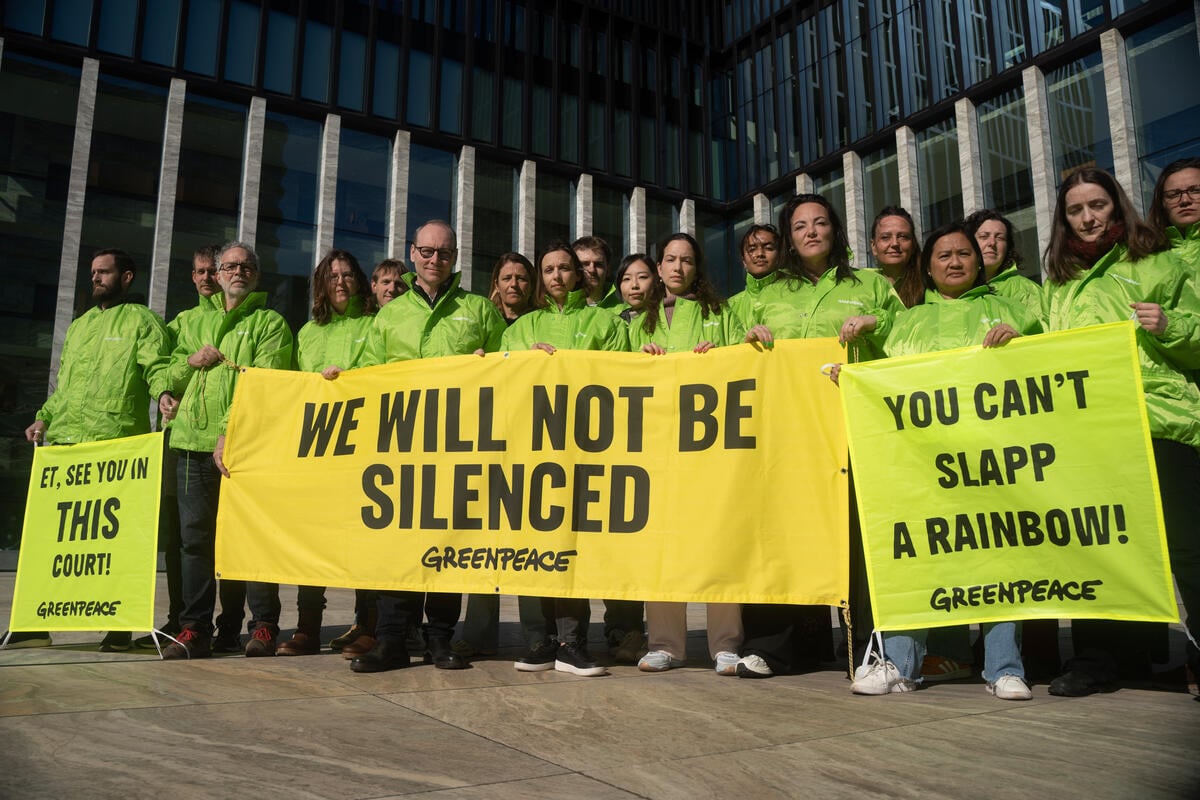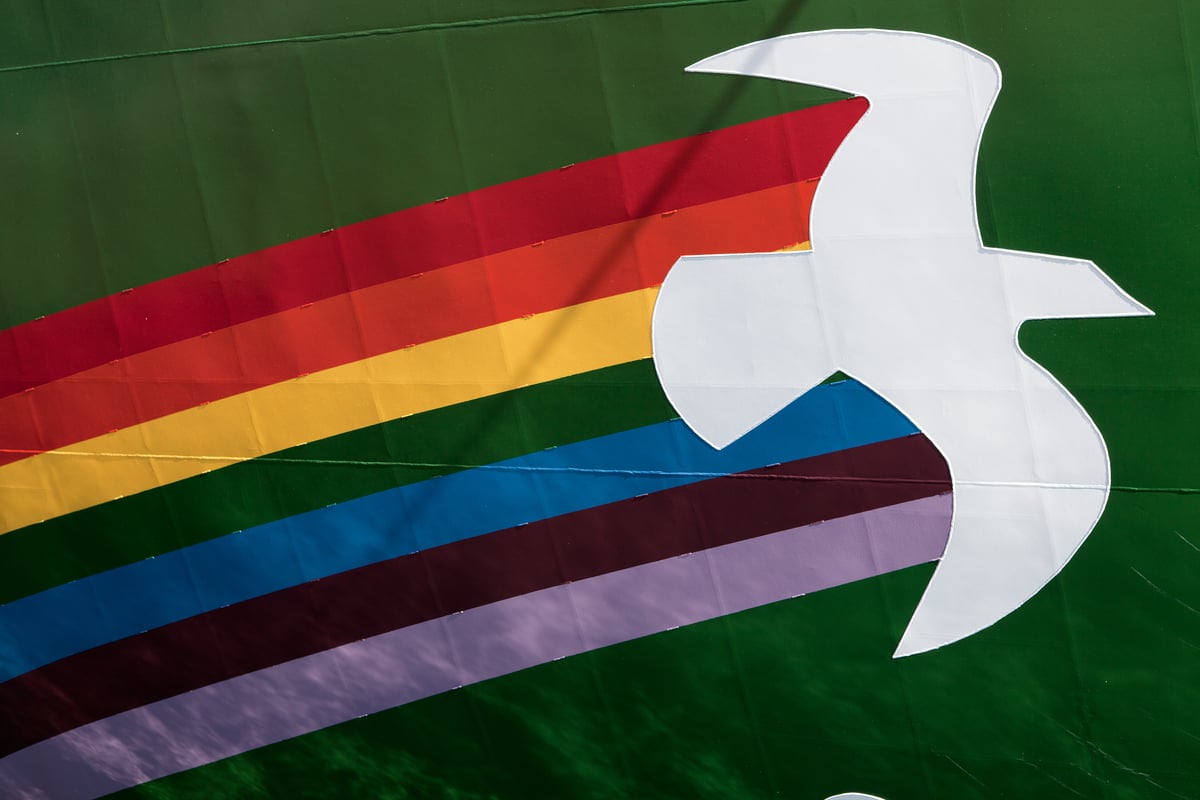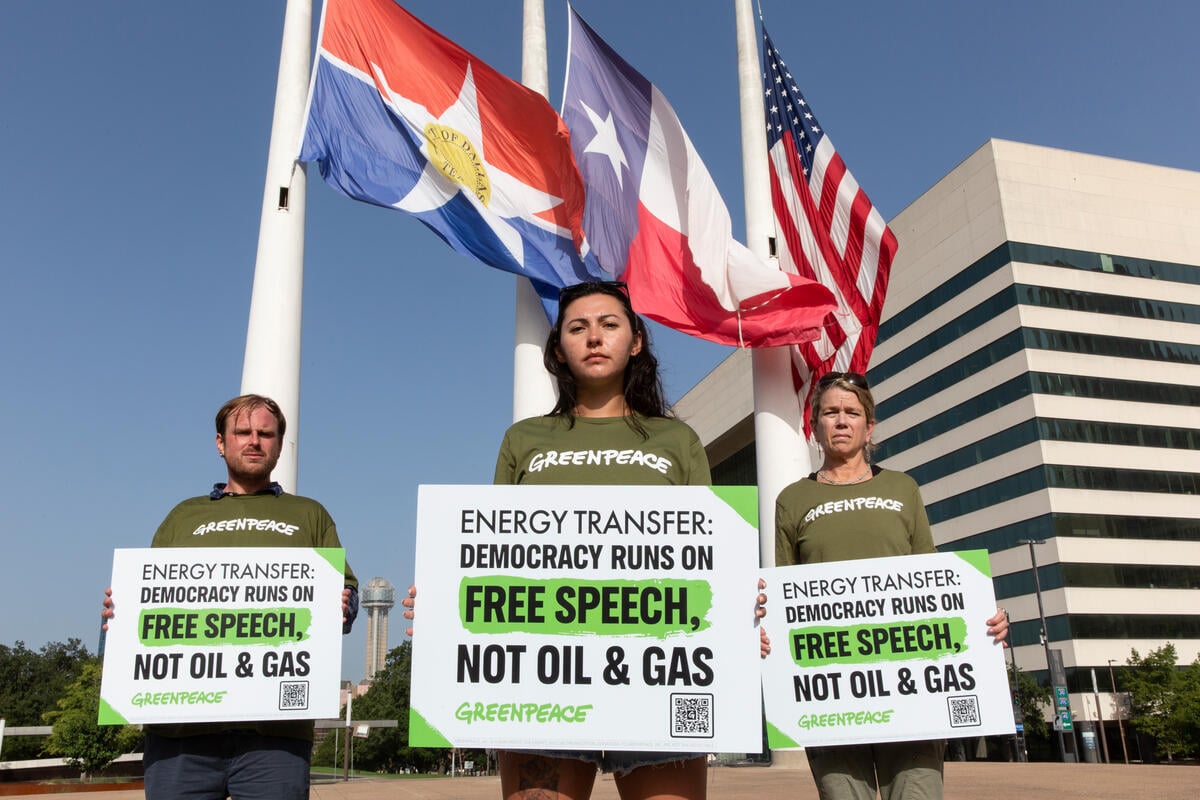I’m trying to be a new kind of person. I don’t mean a kind of person that has never existed before, but a new kind for me, personally. This may seem presumptuous and impossible, because we get set in our ways, driven like all mammals by genetics and habit. I’m 76 and plenty set in my ways.
I’ve become a new kind of person before, but not because I set out to do so. If I try too hard, I’m just the same old person, trying too hard. Becoming a new type of person just happens. Circumstances. When I think back over my life, the first time I recall becoming a new type of person is when I entered high school, because we moved to a new town, a small town in West Texas. I did not know anybody, and the school social culture appeared well established, dominated by sports stars and prom queens, popular students who had girlfriends and boyfriends, drove cars, and went on dates.
I had grown up in wild places and neighbourhoods on the edge of town, where I could run around with my sister or brothers, fish in streams and ponds, climb mountains, and have the sort of free, wild childhood I wish everyone could have. I was confident and knew how to take care of myself. I didn’t really lose my confidence in high school, but my confidence shifted. I felt like a nobody in the swinging high-school of small-town Texas, had no girlfriend, no social status. The girls I fancied had boyfriends. I barely made the basketball B-team and track team, which earned zero status. So my confidence turned inward. I became an academic, excelled in math, was invited into an advanced physics class with two other students, and ended up going to university to study physics in California.
In California, I became a new person again, by circumstance, not design. In 1966, the world was coming unglued with civil rights riots, revolutions, a nuclear arms race, an obscene war in Vietnam, oil spills, and uprisings in colleges and universities. Outraged youth were smoking pot, taking up organic farming, marching for peace, and claiming that our generation could change the world with love. I was hopeful but sceptical, just a naive kid from Texas who was good at math. I worked in the aerospace industry while in school, which was about as uncool as one could be in the era of peace and love.
What changed me — well, the whole complex, confusing, paradoxical, idiotic, beautiful thing I suppose — but Rachel Carson provided the catalyst. Reading Silent Spring blew up my world. I was a budding scientist, but Carson, a real scientist with published papers, possessed the capacity to feel the sacredness of nature. This inspired me to think not about manipulating nature, but about understanding nature.
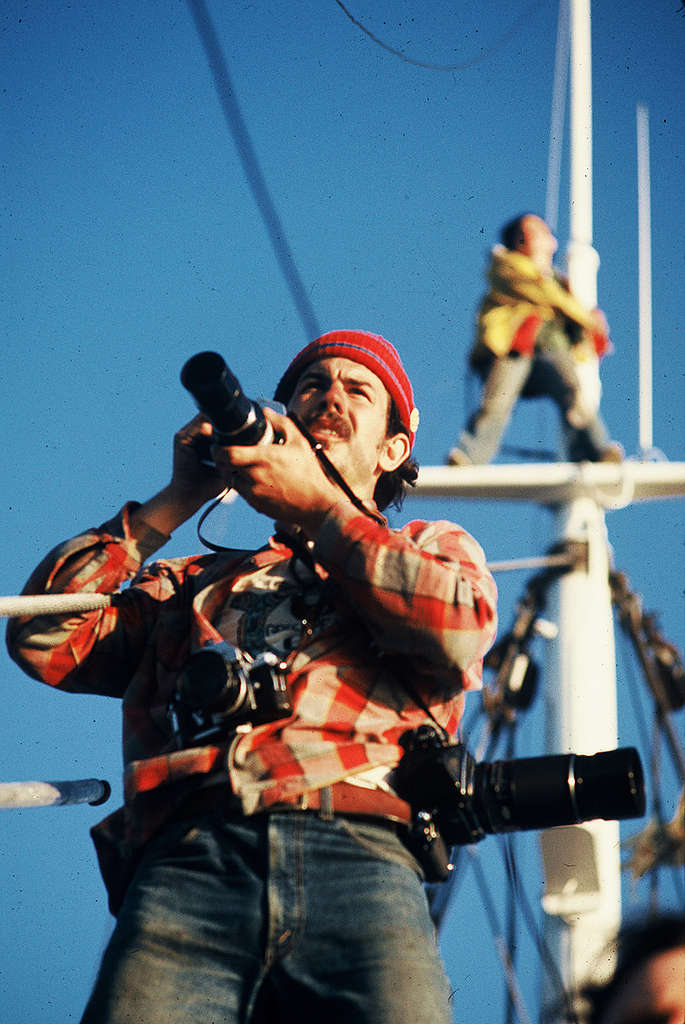
Human scientific cleverness was depleting and destroying what felt precious in this world: wilderness, life, and Earth itself. Carson’s book reminded me of those wild places where I had grown up, the dry Wyoming hills, the raging Bighorn river, ponds of catfish, prairies of magpies. One afternoon, as I read alone under a Eucalyptus tree in Eagle Rock California, realizing that all the calculations in the world were no match for the wild magic of life, tears welled up in my eyes.
I’ve spent the last 57 years trying to fulfill Rachel Carson’s vision, and now I feel, Gaia’s honest truth, that these efforts have been mostly a failure. Sure, perhaps we slightly mitigated the ecological disaster I saw unfolding 50 ago, but I realize now that to face the deep ecological crisis that we have failed to stop or even slow down much, I need to find a new way to think, a new consciousness. This search led me to the research of a dear friend and colleague, Nora Bateson. She had invited me to two “Warm Data” workshops in Wales and London, and — despite my ecological commitment to avoid travel — I decided to go.
Paint the effect
I’m up early, gazing out at the dark morning, spring of 2023. Andromeda sits weeping in the sky. Above, her mother, Queen Cassiopeia watches. I suspect the constellations demonstrate how we project our experience onto nature’s patterns, but I think: Even if the projections are abstractions, the feelings are real and they matter. I’m off for the long journey to the UK for Nora Bateson’s workshop.
Why warm data? What is that? We know what cold data is — even if we don’t call it by that name. That’s the stuff I got good at in school, the numbers, the monitoring of metrics, correlations, kilowatts-per-square-meter, how many Blue whales left, cancer rates near pulp mills, time, distance, acceleration. But what about anticipation? What about promise, forgiveness, possibility? How do we account for the un-monitorable, un-measurable, unspeakable? How do we reckon trust or fear, and how do we count instinct or consider hope?
When we converse, our eyes speak, the pace and tone of words matter. If you glance at the clock while I’m talking, the logic writhes, if you touch an arm the words soften and meanings shift. The wild forest has no plan, and yet it can change into a new kind of forest. How does life know what to do without plans, spreadsheets, and legislators? Why do Cassiopeia and Andromeda matter?
As I prepare to depart, I consider more worldly, urgent questions: Why have my efforts for Ms. Carson failed? Why can’t humanity reverse biodiversity collapse, revitalize the oceans, save the forests, or reduce the toxins in our waste stream? After 200 years of rigorous science that understood the greenhouse effect, why do we still quibble and fail to slow our carbon emissions?
Consider: The first international climate meeting convened in Geneva in 1979. In 2023, the 36th such meeting convened in Dubai. Thirty-six meetings over 44 years and human carbon emissions have gone up every year. This feels like the path of an alcoholic who promises to change and goes into rehab 36 times over 44 years, but can’t kick the addiction. What are we addicted to? Why can’t we follow through and actually change? We certainly have all the cold data we need. Maybe we need something else, something unspoken, unimagined.
We have heard of myriad alleged solutions, and seen billions of dollars invested, donated, and spent on these solutions. We hear of so-called game changer technologies, but the game never changes. Since Rachel Carson’s book, we have thousands of ecology books; I’ve read hundreds, but emissions go up, toxins increase, and more species vanish into oblivion. Why?
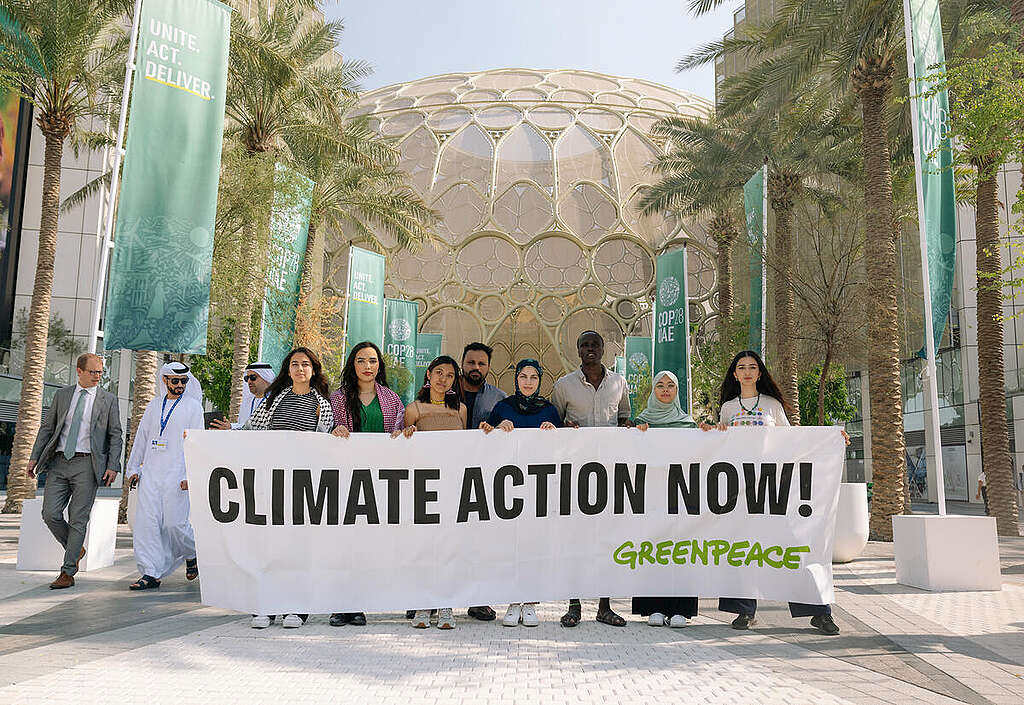
Something is wrong with our notion of what a solution is; something is wrong with our scientific, engineering, cold-data approach. That’s why I’m interested in Bateson’s idea of Warm Data. I know from reading her work and talking with her that she feels we live in “a broken, de-contextualized world,” and that one limit of the cold-data is this decontextualization.
Data always has context. Perhaps a curiosity about the nature of the world led humanity to science, but there we stumbled. Five millennia ago, Taoists found mystery at the core of knowledge and suggested following the patterns of nature as a guide. Two millennia ago, Greek philosophers believed that knowledge rests in two realms: Logos and Mythos, logic and story, science and emotions. Both matter. But Western science dismissed the mystery, ignored story, and adopted science not to understand nature but to control nature, to manipulate, dominate, and constrain nature. The curiosity became obscured and human science drifted into machine engineering, eugenics, biogenetics, and now this strange beast we call artificial intelligence, as if our facility with numbers and logic could replace the processes of wild forests or the deep wisdom of Lao Tsu.
Nora Bateson’s idea of Warm Data fascinates me because perhaps there is a new path, a new way of seeing our dilemma, that will help us find information that is alive, not just the metrics and content of our language, but the art and feeling, the play and wonder, the mystery. I think of Impressionist artist Paul Cezanne, who didn’t just use paint to reproduce the scene, but who painted the effect of the scene on his own psyche. I think of contemporary dance pioneer Isadora Duncan, who went beyond rhythm and danced the deeper unspeakable emotions, longings, and imaginings of the heart, the forces and patterns of nature. When artists overturn convention, that feels like ecology, life seeking life. Perhaps we need a more artistic ecology.
Maybe that’s what we need rather than more cold data, more legislation, and more meetings. Ecology needs a new language, a new context, many contexts. We need an ecology of ecologies, alive and in play, liberated from bureaucracy and ideology.
Nora’s father, ecologist and anthropologist, Gregory Bateson, once said: “The major problems in the world are the result of the difference between how people think and how nature works.” Maybe we need to learn more about how nature works. Morning is over, Cassiopeia and Andromeda have faded from view. I’m off on my adventure.
Patterns that connect
I get a ride from London to Wales with a new acquaintance, Davina, who is lugging supplies to the event. We trade stories of our lives and children, and I’m going on about Andromeda as we navigate the narrow roads of Wye Valley, Hereford, and Eardisly, past stone walls, oak groves, and fields of sheep. Gaia bless us, where are we? The landscape feels like Middle Earth, modest communities clinging to the sparse blessings of the Great Goddess, and we enter a dark archway of oak and ash, the tunnel growing ever darker, with a dim glow at the end. We cross Riddings Brook, among hills dotted with sheep, and I realize suddenly: We are in Wales. We roll through Gwystre as the road narrows evermore, occasionally not wide enough for two passing vehicles, and the sky ahead turns dark with menacing clouds, near black on the horizon. Oaks and sycamores, more sparse now, and smaller, and the sheep graze along the road, disinterested in the passing vehicle, nary a glance. As we approach Rhayader, the landscape abruptly turns more bleak and ancient, cold and dark, the dense greens and red-brown of barren hills now washed in mist.
We enter the famous Cambrian Mountains, Elenydd, source hills of rivers Severn and Wye, under peaks of historic rock, risen ancient sea beds, graveyards of archaic beings almost unimaginable, revealed in fossils from 600-million-year-old sediments. I feel excited that perhaps we might see Cambrian era fossils here, and I presume that the mountains were named after that famous era of life’s explosion. Alas, I learn later that I had it backwards: The ancient Celtic inhabitants called themselves “Combroges,” compatriots, and the region became known as Cymru, land of the Combroges, which Romans Latinized to Cumbria, English Cambria, and thus the Cambrian Mountains. Here, paleontologists first identified Cambrian fossils, thereby giving the name of the ancient Compatriots of Wales to that life-proliferating era that began some 540 million years ago. I marvel at how language weaves its own mysteries.
Abruptly, we arrive at our destination, the Tynrhud lodge, on a tributary of the Rheidol River that runs west into Aberystwyth on the coast. Participants arrive and the lodge fills with the hum of excited chatter. I find Nora, we chat about our families, and I try to express how much I’m looking forward to the week. “The plan,” Nora whispers, almost conspiratorially, “is to see what happens.”
For our first session, the gathered people self-select into groups of four to discuss a cryptic question, “What is continuing in a changing world?” Each group of four is asked to discuss this in reference to a given context. The contexts are handed out: Culture, Education, Family, Economy, Ecology, Media, and so forth, so that each group has its own context. Participants are told that they may leave their group at any time and join another group.
There are no other rules about what one might say, or how to express one’s ideas about the topic in relation to the context. And since people are moving around among the contexts, the conversations evolve with undulating sense and meaning. I soon realize that the Warm Data exercises that Bateson has designed nudges us out of our habitual ways of thinking and talking. I start to experience some vertigo that feels, at first, disorienting. In this maelstrom of fluctuating contexts, words shift meaning in mid-thought, and I start to feel the limitation of learned logic. Habitual ways of speaking sound trite.
I’m in an unexplored sea, where the waves of ideas merge and set up new patterns. I find myself listening more, letting go of figuring anything out, sitting quietly, absorbing not so much the content of what people have to say, but the tone, the modes of thinking, the struggle with ideas.
All information is “trans-contextual,” Bateson reminds us. The “thing” is never just the thing; it shifts, moves. The meanings of words adapt to context. Who am I? An ecologist? A husband? A father, traveler, teacher, and more? These identities co-mingle. If I feel compassion, I adopt a caring tone. If I get triggered with some old point of view I once found annoying, I start compiling my counter-logic. All these versions of me appear to coexist.
What is my context? I’m a journalist, recording events for public consumption. I’m an animal, trying to be a decent member of my herd. I live in a rural Canadian community, in a coastal rainforest. I live in a history that I only partially understand. I find myself sitting in my group of four, thinking about these things, and sometimes I feel pride that I am thinking about these things, and then I feel shame that I’ve lost the thread of what someone else is saying.
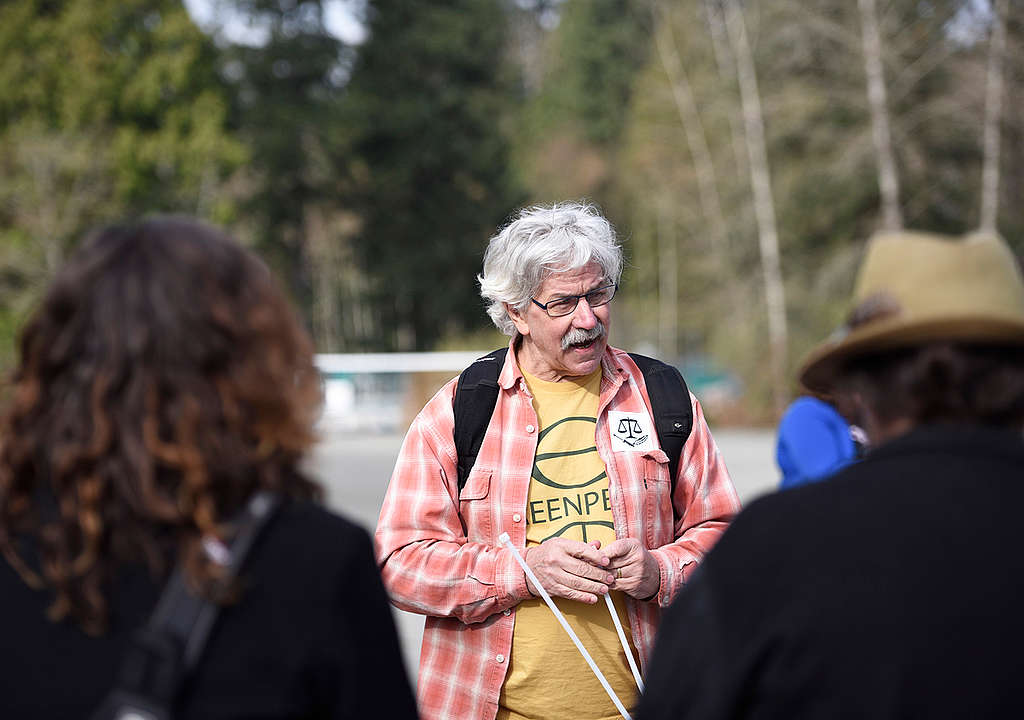
Ecology is a sub-text I bring to all of this. We are practicing thinking the way nature works. Someone asks me what I mean by “ecology,” and I ask: When I eat an apple, when does the apple become me? When does the nitrogen or phosphorus molecule of the apple become a molecule of me? And when I breathe in and out, when are the molecules of oxygen and carbon-dioxide me, and when are they the atmosphere?
We might talk about a tree, the soil, and the atmosphere, but none of those exist without flows of elements from the others. Furthermore, the tree needs the mycelia for minerals and the bee to pollinate and reproduce, so the mycelia are part of the tree’s digestive system, and the bee is part of the tree’s reproductive system. The apple is part of all this, and part of me. This is ecology. This is different than thinking about an “environment” that is out there, all around me, that I’m going to clean up, or save, or fix. Ecology is the state of being of all things, interconnected, co-evolving, nothing existing in isolation from the whole.
Now, in our Warm Data conversations, I’m feeling this reciprocity reflected in our language, the efforts to use words to express feelings and ideas about the world, and those words and the tone or mood of those words shape each other. I’m starting to gain a glimpse of what Nora’s father meant by the difference between how people think and how nature works. Some people take a thoughtful pose, and try to be precise and intelligent. Others well up in tears. The pain matters as much as the logic. Heartbreak shifts meaning.
Maybe this is why Andromeda matters. Poor princess tied to her chair, weeping, suffering over the vainglorious love of her mother. Maybe this is why stories matter, mythos, as tectonic as the logos. The experience of communicating in this mode reminds me of pianist Herbie Hancock describing what it was like to play jazz with Miles Davis: “You can’t lean on what you know.”
A Practice
By dinner on the second day, my head is swimming in the sea of meanings and contexts. I’m a bit lost, and suspect this is a good thing. Over dinner, I find myself in an intimate conversation with people who were strangers only yesterday, now baring their souls. I catch myself drifting in thought as others are speaking, so I refocus and listen. In conversation, the urge to respond can be strong, but I resist, remain quiet, listen. A young man appears to contradict himself, but I don’t point this out. Maybe the contradictions don’t require resolution. I don’t want to contemplate this more deeply because I’ll lose the thread of conversation again. A woman looks right at me and says, “Do you know what I mean?”
I pause. Typically, I might have nodded “yes” and let it go, but now I feel compelled to be forthright. Pretending to understand would violate the intimacy that has developed, so I say, “No,” but softly, attempting to communicate my genuine curiosity. She explains herself with a new story. Someone else adds their own view. The explanations are metaphors, language is metaphor. I attempt to imagine the world of each speaker. What was their childhood like? Their culture? We are creating narratives about the world to make sense of it, but our narratives are not the world. Our narratives are like holograms of our lives.
I look for ways to be precise, but realize my language is a picture, an impression of what I observe in the world. Presumably, we all see the same world, but through our own filters and abstractions. I become more careful, realizing that every thought I have is shaped and sifted through the instincts of my species and the habits, beliefs, urges, or logic that I have acquired over a lifetime. This isn’t news to me, but being more aware of this in conversation changes the conversation.
Then, I scoff at myself again for drifting into these intellectual diversions, and return my attention to the discourse. This zooming in and out, being in conversation and then analyzing the conversation, annoys me but feels inevitable. Big picture, intimate personal story, expansion, reduction, each of these modes feels useful, and the modes relentlessly change. I take some deep breaths and attempt to be present.
During the sessions, we address new disarming questions — What is remembered? What is essential? What are you tending? — and the ever-changing contexts — technology, politics, identity, and so forth. I move through the contexts, finding a vacant chair in a group of four, but the groups shrink and swell, some groups growing to seven or eight participants, people leaving and arriving, some groups rock with shrieking laughter, others remain solemn. I end up in a group of two, with a clever, funny gentleman from the Netherlands, who tells me a long story about his struggles with social diversity and conflict.
I realize after a few days, that my manner of discourse has entirely shifted. I’m more aware that every question can be approached from myriad contexts, but the experience feels even deeper than this. The contexts merge. Each situation, and each description of the situation, is awash in the changing contexts. I get used to re-thinking an idea by considering a previous context or an entirely new context. The language itself grows more ambient, conditional. Presumably concrete nouns shift and take on new meanings. If everything is actually a living process, nouns feel like part of the problem, approximations of dynamic complexity. I ponder my own previous thoughts about the atmosphere, soil, tree, the bee, and me. We’re not things. We’re participants in a living process. The connections are not intellectual, but rather a deep quality of the world, a quality that resists description. The relationships among alleged things are not linear, but swarming like insects.
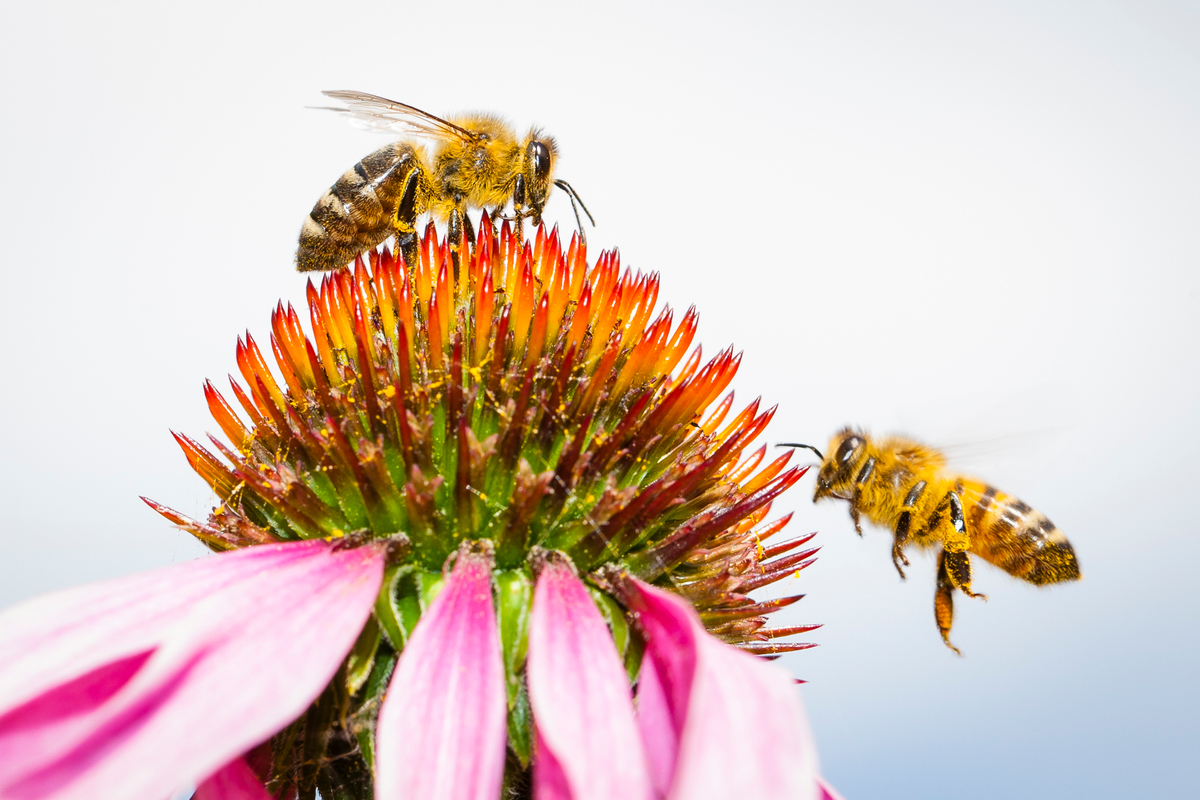
A woman talks about personal responsibility for climate change, and then questions herself, wondering how her ideas about taking action are shaped by her own self identity. Someone brings up “virtue signaling,” and relying on group identities. She wonders if we just say what gets group approval, or that we feel might be necessary to get grants, like the corporate scientist just saying what is necessary to lure investments and generate profits. How challenging I find it to have no bias at all, to possess some authentic curiosity about the world. I sense the fluctuations, one moment discussing the topic, sometimes slipping entirely inside a conversation, engrossed, then back out, thinking and talking about the process of communication itself.
I think: Nora has played a trick on us, a compassionate scheme perhaps, but still a sleight of hand. The questions are real, the contexts are real, but neither is the point of these exercises. This is a practice, like meditation, to lure us into examining our own modes of thought and communication. And, it is working.
St. Mark’s canal
After a week, we depart to London, where we reassemble with some new participants, at St. Mark’s, a stately stone church, built in 1853 in Regent’s Park. I feel as if I’ve learned something about communication, but I wonder how these lessons, new understandings, can apply to solving the ecological crisis or myriad crises of violence and injustice.
How do we understand ourselves, the world, or information that is fully alive, constantly changing? Everything exists in a “nest of relationships,” a term Gregory Bateson used. Nora Bateson, carrying forward this tradition of how to think as a living system, has suggested some new ways to consider systems. In the old engineering diagrams of a system, we typically see nodes — circles or points — connected with lines. “Does anyone feel that these dots and lines describe your relationships?” she asks. Throughout the church of St. Mark, heads shake “No.”
Do these dots and lines reflect the complexity of a forest? No. How do real living systems work, change, solve problems? During a session, on our last day in St. Mark’s hallowed hall, I feel lost again and need a break. I wander outside, down to the canal, find a bench, and sit down.
I think of Nora’s example regarding how all living plants and animals in a forest — or the organs in a body — are responding to conditions, but those conditions change as each entity responds. Oxygen, the waste product of photosynthesis, was once a poison for early bacteria, but some forms learned to metabolize oxygen, such that now animals breathe oxygen and Earth’s atmosphere possesses a balance of oxygen and carbon-dioxide. Of course, that balance is being upset, so Earth is heating up and every living being will have to adjust and co-evolve.
All participants in a living system are learning to live in ever-changing conditions, even if this learning is unconscious. Bateson points out that the participants are “co-learning” and for this idea, she has coined a word, “symmathesy,” a Greek derivation for “learning together.” Each of us is a participant in a vast, complex global system, but each of us is also a system of organs, nutrient flows, energy flows, communities of bacteria, and so forth. The vastness and complexity of these co-evolving systems makes it difficult for us to even know how we are changing and adapting to change.
I have no solution for our human dilemma, but I suspect this might be a good thing, a first step in arriving at a deeper understanding. I want to change but realize that most of our changing remains unconscious, driven by forces we don’t necessarily see, discomforts, genetic signals, chemical shifts, and firing bio-electric circuits. I’m beginning to see how the conversations in the Warm Data labs —shifting context, unresolved contradictions, metaphor, emotion, body language — begin to reflect the complexity of living systems.
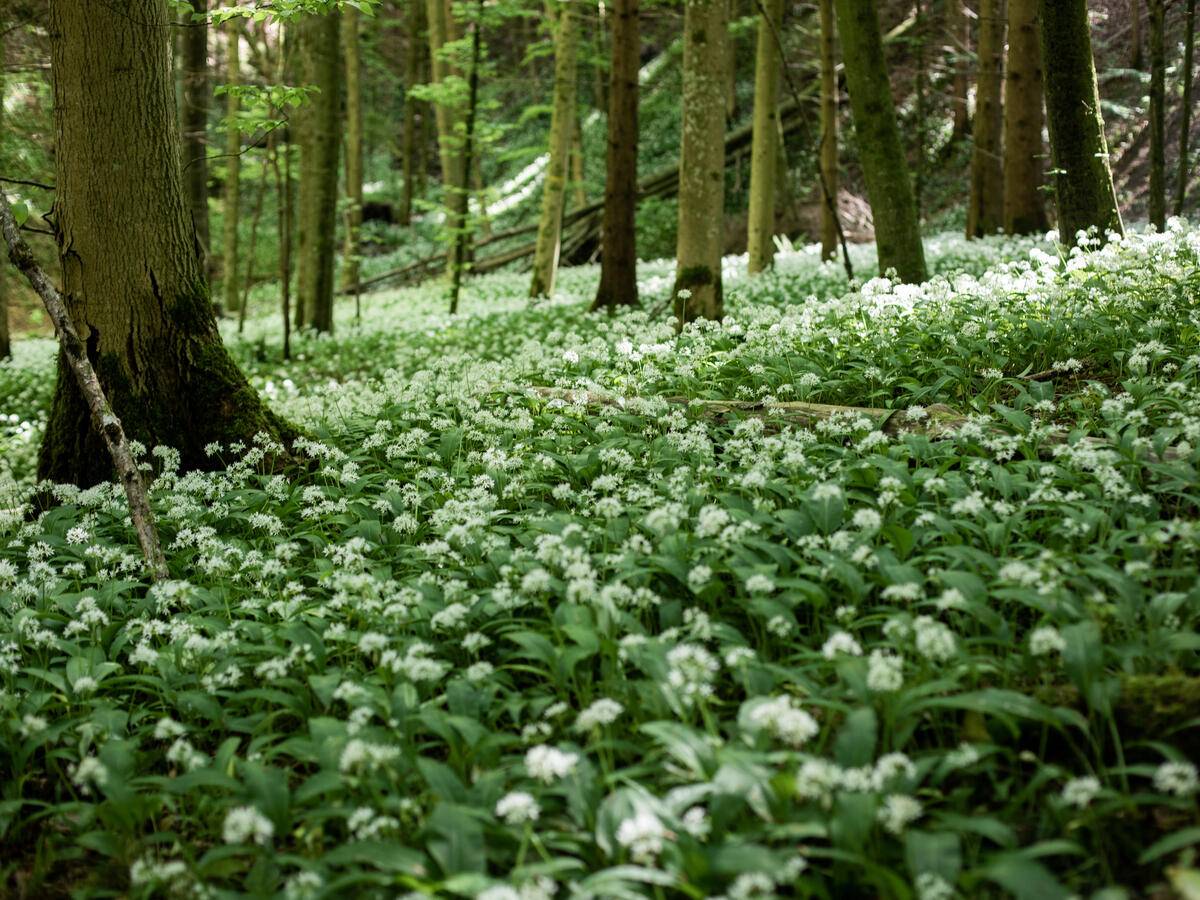
In living systems, change does not necessarily occur through direct preferences of the participants. This may be why human plans go awry. Sitting by the canal, I think of a poem I wrote years ago, in my youth, on a camping trip, with some lines that read:
It rained on our dishes, it rained on our pans
It rained on our wishes, it rained on our plans.
I’ve lost count of all the times someone has said to me: “If everyone would just (fill in the blank) we could solve (such-and-such a problem).” If everyone would just be a vegetarian, we could solve climate change. If everyone would just share, there would be enough for all.
Yes, but everyone will never take any prescribed action. People don’t like being told what to do. There is always resistance. I think of raising my own sons. Children learn by what they see and feel around them. Telling one’s child what they should do is no more effective than “to whip the fog,” as Mary Ann Evans (who had to write under a male pen name to get published in the mid-nineteenth century) once said. The Taoists understood this. All action creates opposition. Therefore, people with a plan for everyone have to try to enforce their plan, and we end up with bossy crusaders, sociopathic bureaucrats, and police states.
Direct correctives don’t work. Communism becomes the gulag and Red Guard, Capitalism becomes frivolous consumption, resource wars, and profiteering with deadly products such as DDT and glyphosate. Desires to change society morph into ideologies, which morph into institutions to protect the ideology. Beneath the tower of St. Mark, I’m working myself down into a spiraling panic, realizing I have no answer to my quandary.
Humanity finds itself in a double-bind, another concept introduced by Nora’s father. Double binds arise in all walks of life. In personal relationships this might arise if, for example, a child suffers abuse at home. This creates a psychological trap. If the child remains in the home, they suffer, but if they leave, run away, they lose the security of home and may also suffer. On top of this, they find it difficult to discuss their trap because if they do, they fear more abuse. Gregory Bateson pointed out that these sorts of binds can contribute to psychological dysfunction including schizophrenia.
Is this happening to me? Can an entire civilization become schizophrenic? On a global scale, our ecological double bind arises since our ways of living abuse the Earth’s systems that we need for life. If humanity does not change its ways (long list: burning hydrocarbons, unfairly distributing resources, toxic pollution, violence, unchecked growth, depleted habitats, and so forth) we destroy Earth’s ecosystems, which could lead to decline and collapse. If, however, we change those habits (stop burning hydrocarbons, stop pollution, etc.) we risk crashing our industrial economy that depends on growth.
Humanity cannot maintain infinite growth — as desired and demanded by our economies — and simultaneously have less ecological impact on Earth’s ecosystems. We desperately want this to be otherwise. We consider building billions of electric cars, solar panels, and windmills, but we have to mine the lithium, cobalt, and nickel; we have to make steel and cement, complex alloys, and glass. We ship this stuff all over the world in energy-intensive vessels. Our allegedly green technological gadgets require the entire industrial juggernaut.
On top of this, there exists a taboo against even deeply discussing Earth’s limits in any significant, open discourse, because our public dialogue remains dominated by doctrinaire camps, fighting tooth and claw, those who want society to change and those who want to preserve business as usual. Both extremes appear as swollen bureaucracies of partisan zealots, bickering among themselves and mocking the other side.
I don’t want to be a partisan anymore. This is part of the personal change I’m seeking. I believe there is something dangerous about our entire notion of what a solution even is. We’re trying to engineer our way out of an ecological crisis that we engineered ourselves into. Growing bigger and more complex might not help. We’re going to have to humble ourselves first.
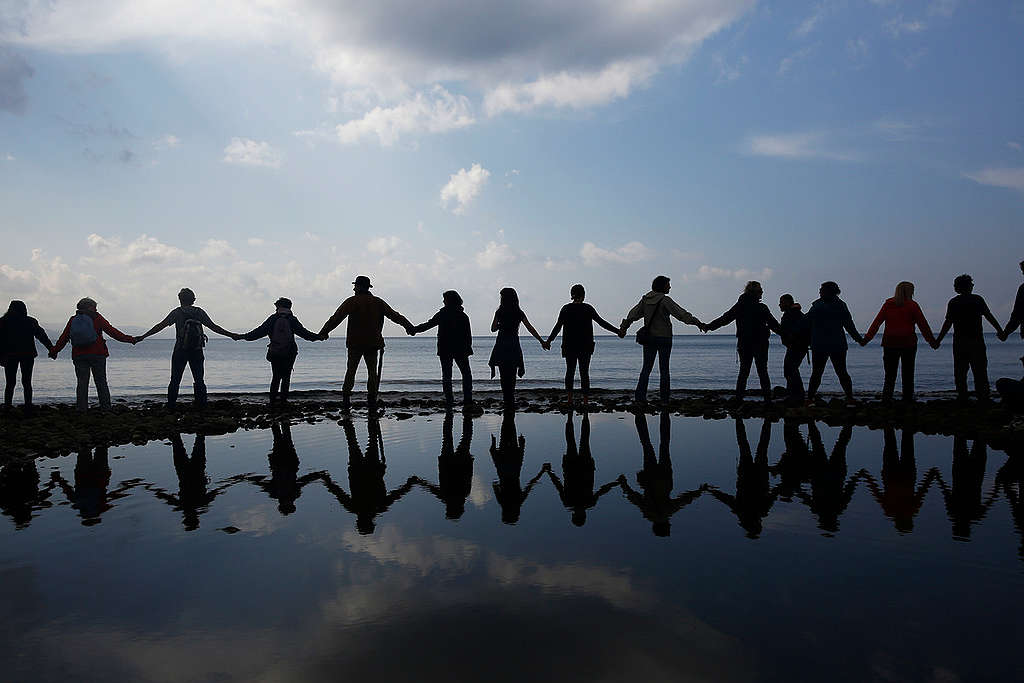
Watching the ducks on the canal, I think about the decades ticking away, evolution taking its course, life making life. A young couple walks by holding hands. They have to dodge a bicycle that comes around the corner, to avoid going into the water, but neither the cyclist nor the sweethearts say a word. A mother coot swims by with three chicks to see if I’m a source of food. Sorry little ones. Not this time.
I feel a great sadness for the world and I’m on the verge of tears, but I take a deep breath. An old guy weeping on a bench is too pathetic. I don’t want to upset the dear folks walking by, and besides, I don’t want someone coming to my aid, so I choke back the tears, but not the sadness. I suspect that not having an answer, not knowing, is part of the journey that I need to take.
Nora, a great inventor of words, like her father, also came up with “Aphanipoiesis,” another Greek derivative, to suggest the power in the unseen, the submerged process, the potential that we cannot yet envision or articulate. When I look for hope, I find it in nature itself, in the wild places and wild creatures. Trust in the unseen feels right to me. Ecology is not some problem we’re going to fix with more gadgets. Ecology is life becoming more life, everything in process.
I start talking to the coots. Don’t worry little ones. There is hope in the unseen, in the unspeakable, in the wildness within us. You’re fortunate to be wild and free. Perhaps we must be patient and give the mystery some room for its long coalescing.
I think of Nora asking herself, and all of us: “Do I have room in my identity to become something new, hold a new idea, consider a new idea? What can I become when I am with you?”
The water-birds swim on, the little chicks poking at each piece of flotsam to test if it is edible, the mother twitching her head side to side, watching diligently. Life takes its course. I haven’t answered my question, but maybe accepting that is an answer. I’ll be back home soon, and the thought gives me comfort.
Fire and rain
A few days later, I’m home with my loving wife, our beloved dog, friends, and our community. Something has shifted for me. I’m friendlier, more open, more ready to engage in long conversations at the market or post office, less quick to judge or critique my neighbours. I feel more tolerant of ideas I don’t naturally agree with, less quick to critique or debate. Ironically, having failed to answer my deepest questions, I feel more at peace.
A late spring storm blows through, whipping up whitecaps on the lake, wind rattling the windows, and rain pounding the shakes overhead. The roof gutters are clogged, spilling water by our door, so I get the ladder and clean them out, a job I usually abhor, but now find almost relaxing, simple, scooping soggy, half-composted leaves from the gutter and saving the sludge for the compost pile, thinking again about the soil, the fruit trees, and the bees.
That evening, our home feels cold enough for a fire, so I go out, bundle together some remnants of last winter’s firewood, and build a fire in our wood stove. I sit, watching the orange flames licking around dry sticks and a log, feeling the heat. I know that this is solar energy, transformed and stored by the trees, now being released by the flames, for my comfort. I feel grateful that we even have a wood stove and a dry place to live. I think of the chicks at the canal, tucked behind the wings of their mother, and the goslings on the lake near our home, huddled under the sweetgrass to keep dry. I know that not everyone in the world is warm and dry, not everyone is fed or sheltered, cared for or loved. Life offers miracle and tragedy every day, peace and conflict, fire and rain.
Nature is our mother, whom we can love, but not fix. Sometimes we can help, if we’re paying close attention to her patterns and processes, but sometimes we need to tuck in under her compassionate wings and be grateful for a moment’s peace.


